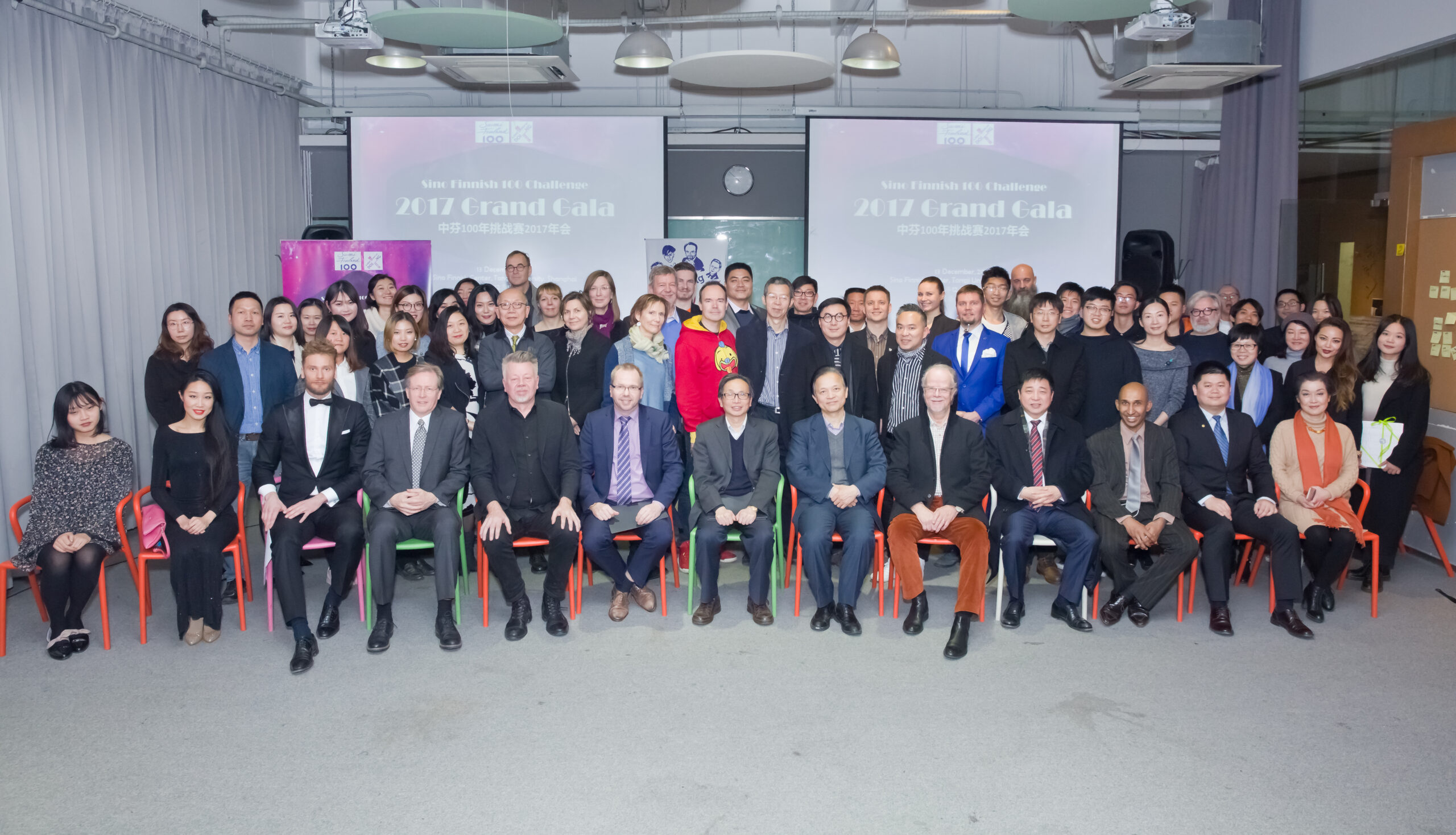Design bridge from Finland to China

The largest project to celebrate the centenary of Finland’s independence in China, the Sino Finnish 100 Challenge, created relations between Finnish and Chinese students, companies and universities. Launched this year, it will continue for at least five years.
The largest project to celebrate the centenary of Finland’s independence in China, the Sino Finnish 100 Challenge, created relations between Finnish and Chinese students, companies and universities. Launched this year, it will continue for at least five years.
Shanghai. “It was a unique experience in an extremely international atmosphere. We used a lot of English and learned a lot about each others’ ways,” says Mengfan Chen. “Studying at the summer school was very different compared to studying at Tongji. Here students listen to lectures, but at the summer school, we worked together in workshops.”
Last summer Mengfan participated in the Sino Finnish 100 Challenge summer school in Espoo together with fellow students Jingming Sun and Dejun Zhang and more than 100 Finnish and Chinese students.
They ranked among the top ten of 661 proposals in a related brainstorming competition completed in early summer. Their proposal was awarded with a diploma in the final gala of the Finnish 100 Challenge held in Shanghai 13 December.
The three speak good English unlike many other Chinese students. English teaching is often of low quality, and the students are not able to develop their skills.
For the brainstorming competition, Chen, Sun and Zhang developed an online virtual learning environment for young people from different countries to make new friends and discuss in English.

The brainstorming competition for students was just one part of the Sino Finnish 100 Challenge, the largest project to celebrate Finland’s anniversary in China.
Finnish organizers summarized the year before the beginning of the gala event in the Sino Finnish Center meeting room of the Tongji University. They agreed that the set targets had been achieved during the year.
“In total more than 3,000 people participated the various phases of the project. The number of partners, companies, institutions and universities involved was 32, and six cities,” recalls project director professor Jarmo Suominen.
Aalto University and the University of Helsinki participated in the project from Finland, and from China, important design schools like the Tongji and Donghua universities in Shanghai, the China Central Academy of Fine Arts and Tsinghua in Beijing, as well as the polytechnic college of Hong Kong and the technical university of Guangdong. So many schools in cooperation with the Finns is a good result as such.
One of the central objectives of the project was to learn about cooperation and make more students of Chinese top universities interested in Finland as a place to study or work, or in Finnish companies in China as their potential employers.
This objective was achieved at least for Mengfan Chen, Jingming Sun and Dejun Zhang. All of them would like to return to study in Finland at some point.
Another objective was to create business opportunities for Finnish companies through cooperation in China. A year is a short time, however.
In the final gala in Shanghai, professor and chair of the organization committee Yrjö Sotamaa launched a follow-up project to the Sino Finnish 100 Challenge for the next five years. In the future, the theme of the programme is Life in Future Cities, including more brainstorming competitions, summer school and various design-solution-based projects in the cities.


The programme of the project is to be published shortly. The objective is to attract more educational institutions and cities from China and Finland, in addition to current participants Helsinki and Espoo. In addition to currently involved universities, more institutions are invited to join from China and Finland.
The project has satisfied its Finnish organizers and many others. The directors of the Chinese universities, including director of Tongji University Zhong Zhihua, emphasized fruitful cooperation and willingness to continue the project in the years to come. The five-year programme aims at developing new types of innovations to use the cities, for example.
Su Yungsheng is the director of a new educational unit founded by Aalto and Tongji universities, the Shanghai International College of Design and Innovation, that started operations this autumn. Su has long-term experience of cooperation with the city of Shanghai. He was part of the World Exposition in Shanghai in 2010, and he has good relations, for example, to the transport authority in Shanghai.
“One of the challenges of the programme could involve developing the Shanghai metro system, how to connect it with the rest of the transports more fluently,” Su explains.
Su has been involved in the Sino Finnish 100 Challenge since the very beginning.
“Sino Finnish 100 Challenge profoundly transformed the atmosphere. Technology, art and business co-exist in a shared ecosystem,” he concludes the benefits so far.